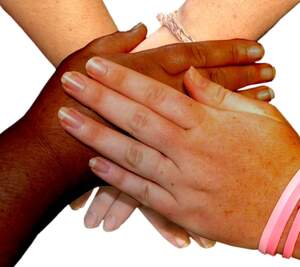

World Toilet Day
Observed
annually on November 19th (since 2001)
Dates
Founded by
World Toilet Organization on November 19th, 2001
United Nations General Assembly (UNGA) on July 17th, 2013
Hashtags
Sources
World Toilet Day is about more than just toilets; it is about sanitation as a whole, which includes components such as hygiene and the management and treatment of wastewater. The day's goal is to inspire action to address the global sanitation crisis. Jack Sim founded the World Toilet Organization on November 19, 2001, and then declared that day to be World Toilet Day. After its founding, various organizations around the world marked the day, and it gained a new level of legitimacy in 2013 when it was formally recognized by the United Nations.
The United Nations designated the day "in a bid to help break taboos around toilets and make sanitation for all a global development priority." The World Toilet Organization and the Government of Singapore were at the forefront of getting the United Nations to recognize the day. It was done so with Singapore's first United Nations resolution, titled "Sanitation for All," adopted as resolution 67/291 by the United Nations General Assembly on July 24, 2013. The resolution "urged UN member states and relevant stakeholders to encourage behavioural change and the implementation of policies to increase sanitation among the poor." It called for an end to open defecation, which it said was harmful to public health, and also called for countries to have a broad approach to combating sanitation, where they promote hygiene, provide basic sanitation services, and sewage and wastewater treatment. The resolution also said that non-governmental organizations and civil society also had a role to play in raising awareness about toilet access.
Why are toilets important enough to have their own day? Put simply, they save lives. Exposure to human waste, which happens more often without proper toilet access, can affect many facets of existence. It can impact public health by spreading disease. It can affect nutrition, living and working conditions, education, and economic productivity. Toilets are also important because they provide human dignity, as well as safety, especially for women.
As of 2019, there were 4.5 billion people in the world who didn't have a safe toilet to use—well over half the world's population. Open defecation, practiced by about 892 million people, leads to contaminated water and soil. About 2 billion people drink from a water source that is not protected from contamination or feces, and almost 450,000 people die from diarrhea every year on account of poor sanitation, which also allows diseases like trachoma and intestinal worms to thrive. One out of five schools worldwide don't have toilets, and 900 million children have no way to wash their hands at school, which would help stop the spread of disease. In total, about 80% of the world's wastewater goes back into the ecosystem without being treated or reused.
In 2016, the United Nations adopted Sustainable Development Goal 6 (SDG 6) to address these issues, with the goal of having sanitation and water available and sustainably managed for all. It called for a safe toilet for everyone and no open defecation by 2030. As of 2019, the world was not on track to reach the goal. World Toilet Day exists to help reach it, by informing, engaging, and inspiring people to take action.
UN-Water runs the World Toilet Day's website and, since 2012, has chosen a new theme each year, which they base on the year's World Water Development Report. Some themes have included Toilets and Nutrition, Equality and Dignity, When Nature Calls, and Leaving No One Behind. UN-Water also develops content for communication campaigns for the day.
On the day, UN members and entities, international organizations, local civil society organizations, and other volunteers plan events in order to raise awareness and inspire action. In the past, some events have included seminars, film viewings and discussions, and school drawing competitions. "Urgent Runs" have been held in at least 42 countries. Organized by private companies, community groups, universities, and NGOS, they have included fun runs, awareness walks, toilet cleaning programs, motorbike parades, and carnivals. Some organizations, such as UNICEF, WHO, USAID, and the International Labour Office put out toilet-related or sanitation-related reports on the day.
How to Observe World Toilet Day
The day is best used by learning about and working to raise awareness about global sanitation issues. The following are a few ideas on how the day could be spent:
- Check to see if any events are happening in your community. "Urgent Runs" are often held, which may include events such as awareness walks and fun runs. Some events for the day are listed on the World Toilet Day website. You could even organize your own event and add it to their map.
- Explore resources you can use to promote the day.
- Watch a film that explores the topic of sanitation and access to toilets, such as Flush or Toilet: Ek Prem Katha.
- Read a book about the topic of sanitation.





















